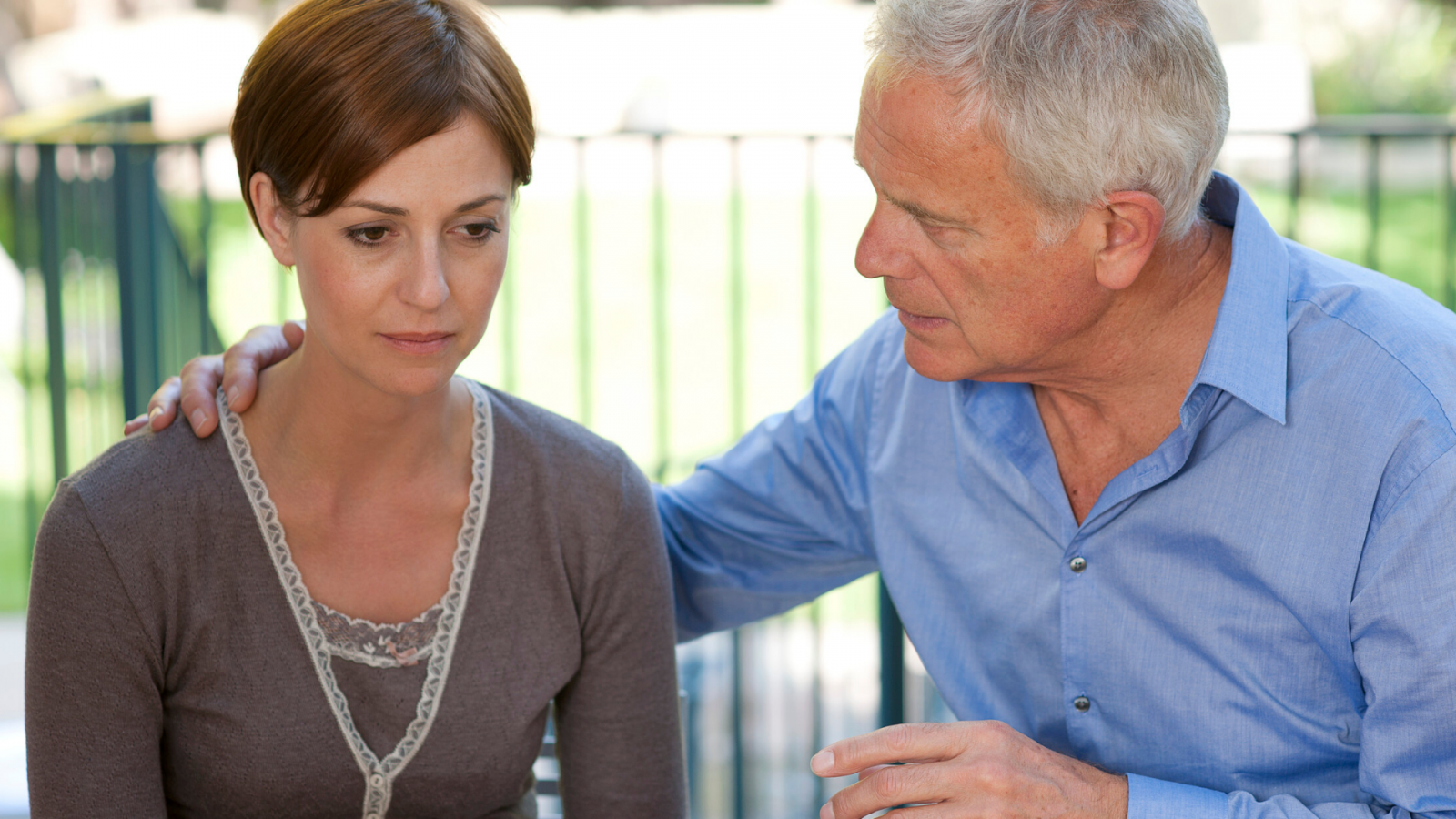Coping with brain tumour seizures

On this page:
It is quite common for someone with a brain tumour to have a seizure (fit). There are different types of seizures. Symptoms depend on what type of seizure it is.
Symptoms can include:
- Shaking in one part of the body, such as a hand, or shaking of the whole body
- Feeling a bit strange, being unaware of what’s going on around, staring blankly
- Noticing odd smells and sensations, a feeling of déjà vu
- Twitching muscles
- Getting confused
- Becoming unresponsive or unconscious
Advice for carers
It can be upsetting to see your loved one having a seizure, but they usually pass quite quickly. It may take a short while before the person feels back to normal again after a seizure. It’s important for them to rest until they have fully recovered. Here are some things you can do to care for the person during and after a seizure.
Convulsive seizures
This is where the person's body shakes rapidly and uncontrollably.
How to help
- Keep calm
- Stay with the person
- Move things like chairs and other objects away from them so they don’t hurt themselves
- If you can, put something soft under their head
- Reassure the person throughout the seizure and when it is over
- Stay with the person until the seizure is over and try to place them in the recovery position
- If possible, contact a family member or friend to ensure their safety
Do not:
- Try to physically stop the seizure or restrain the person
- Put anything in their mouth
Partial seizures
With partial seizures the person may stare blankly, chew, fumble, wander or be confused.
How to help
- Keep calm – speak quietly and reassure the person
- Protect the person from hazards without restraining them
- Explain to others what is happening
- Don’t leave the person alone until they are fully conscious and aware. Make sure they know the date, where they are and where they are going next
When should I call an ambulance?
- If the person has more than one seizure one after the other
- If the seizure lasts longer than is usual for the individual or for more than five minutes
- If the person is injured
- If the person is unusually slow to recover, for example, if they do not regain full consciousness or remain confused
- If the person has had a seizure in the sea or swimming pool
Driving and brain tumours
If you have been treated for a brain tumour, you will have to wait for a period of time before you are allowed to drive again. The amount of time depends on the treatment you have had, the type of brain tumour, and any symptoms you may be experiencing.
Contact the Road Safety Authority on 1890 40 60 40 for information on the Medical Fitness to Drive Guidelines. You can also read and download the Guidelines from the Road Safety Authority website at www.rsa.ie.
For more information
Phone
1800 200 700



